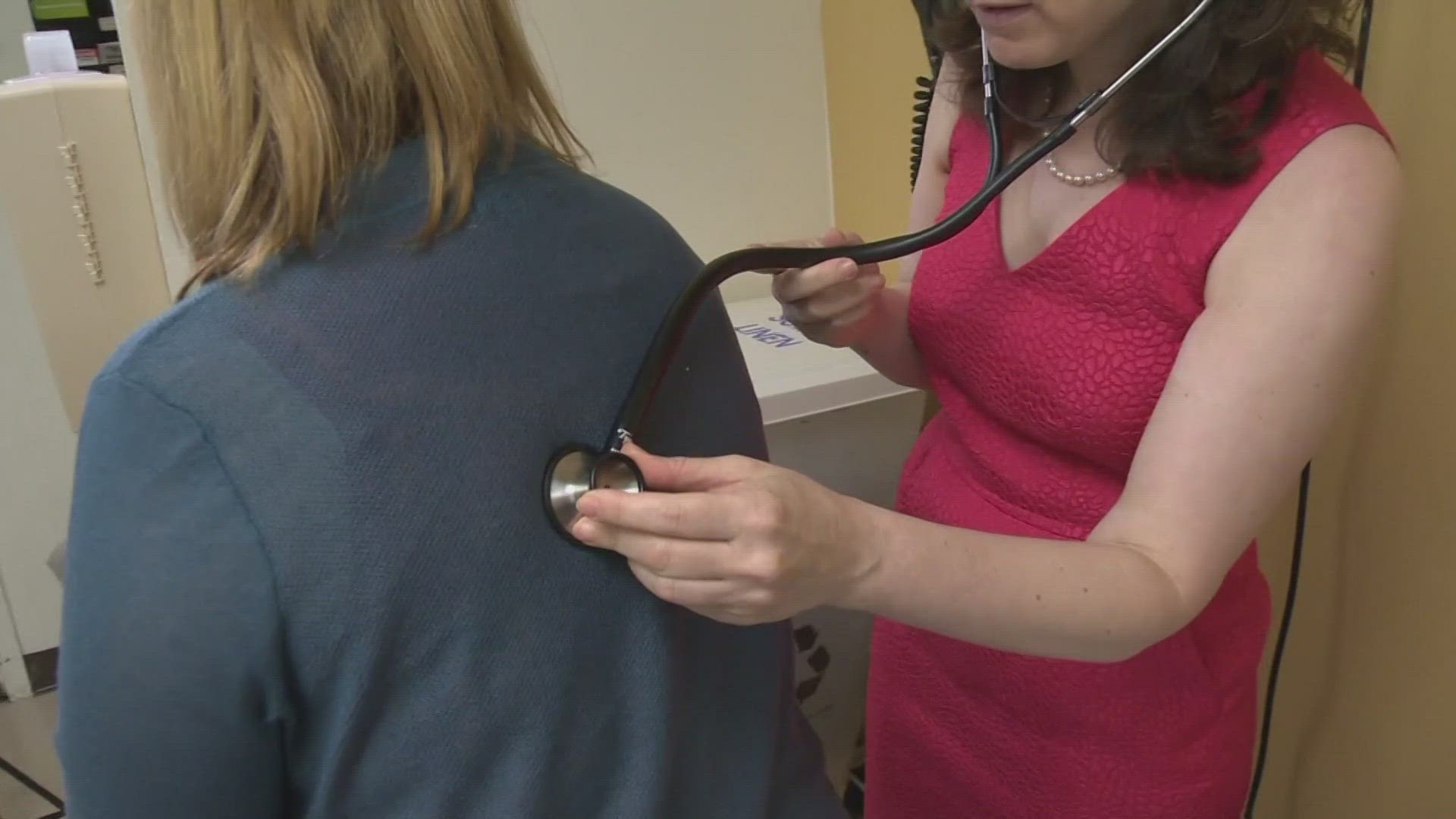KNOXVILLE, Tenn. — Ladies, here is your warning—perimenopause is coming and you may not even know what it is. It comes in the years before menopause in your late 30s or early 40s and it can throw your body and mind into a spiral.
Comedian Leanne Morgan from Knoxville joked about the condition in her new Netflix special.
"It comes like a ghost in the middle of the night and it's called perimenopause. Honey, they've laid in the bed next to a woman and thought, is that steam coming off of her," Morgan said.
This is exactly how local mom Sarah Boertje felt and she had no idea what was happening to her body.
"In the middle of the night, I just got up to go to the bathroom and was a little overheated and I thought, well, I'll cool down just like all the other times maybe. And I sat there and I got hotter and hotter," Boertje said.
That's when it hit her. "If it looks like a duck it quacks like a duck. It's probably perimenopause," Boertje said.
And sure enough, her doctor confirmed. Perimenopause is a condition that starts before menopause in a woman's late thirties, or early forties.
"Women will start to experience some menstrual irregularities, they may start to have some other symptoms where their sleep is a little bit interrupted, maybe some mood up and down around the time of your menstrual cycle, but probably the biggest complaint I get in my office that I have to address on a daily basis is actually the fatigue," UT Medical Center OBGYN Dr. Paige Kessler Johnson said.
Johnson has a lot of patients who come to her for help on this topic.
"We're going to work through all of these symptoms, and we're going to try to figure out what's going on. Sometimes it is perimenopause. Sometimes we can highlight something else, but that's my job," Johnson said
Like Boertje, a lot of women don't even know what's happening to them.
"We're raising children, our parents are aging, we have kids leaving for college, and then our bodies are changing. So there's a lot of transition during this time," Johnson said.
And Boertje can relate. "Moms are terrible about ignoring low levels of annoyance and pain. We blow it off. It happened one time, case closed. I feel better now. And I think that is probably the trickiest part about perimenopause symptoms is we don't talk about it very often with each other."
And there is help out there for women struggling with symptoms. Johnson says it's not something you just have to live with.
"Even if hormone replacement therapy isn't what you want to do, there are so many other things that we can do to help offer some relief of symptoms, which values the person and where they're coming from in life and what's important to them," Johnson said.
And Sarah encourages other moms going through this to confide in their families for support.
"I might just tell them, I don't always feel like myself. I'm having a bad day. Sometimes maybe today's that day. Maybe it's tomorrow. I know, you have bad days, child. And we need to be able to give space to each other when we're having and some understanding and grace for each other," Boertje said.

